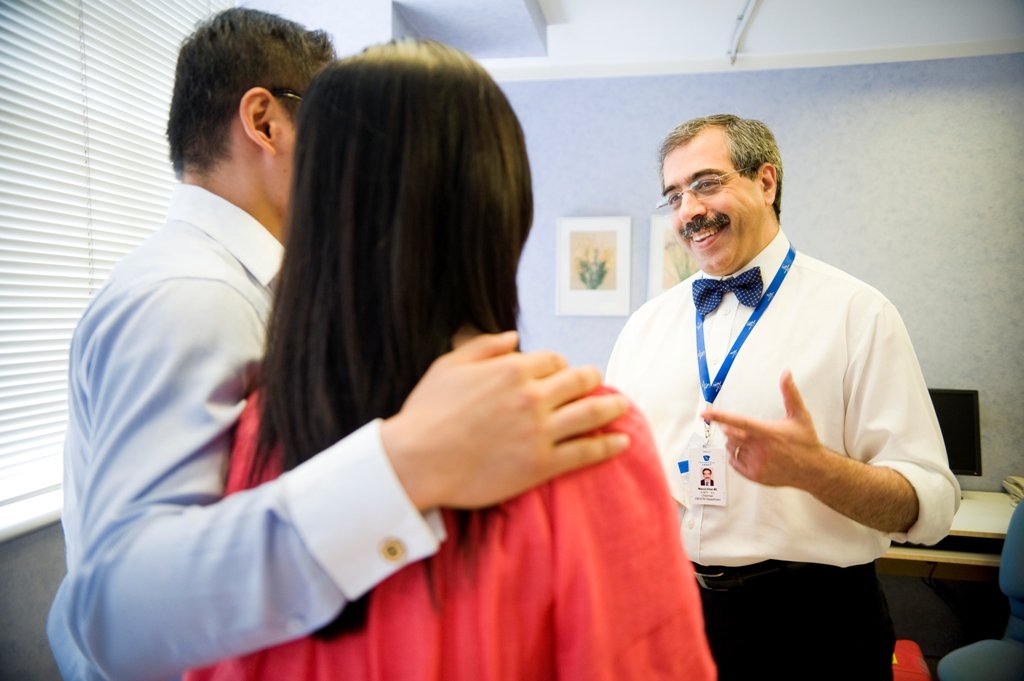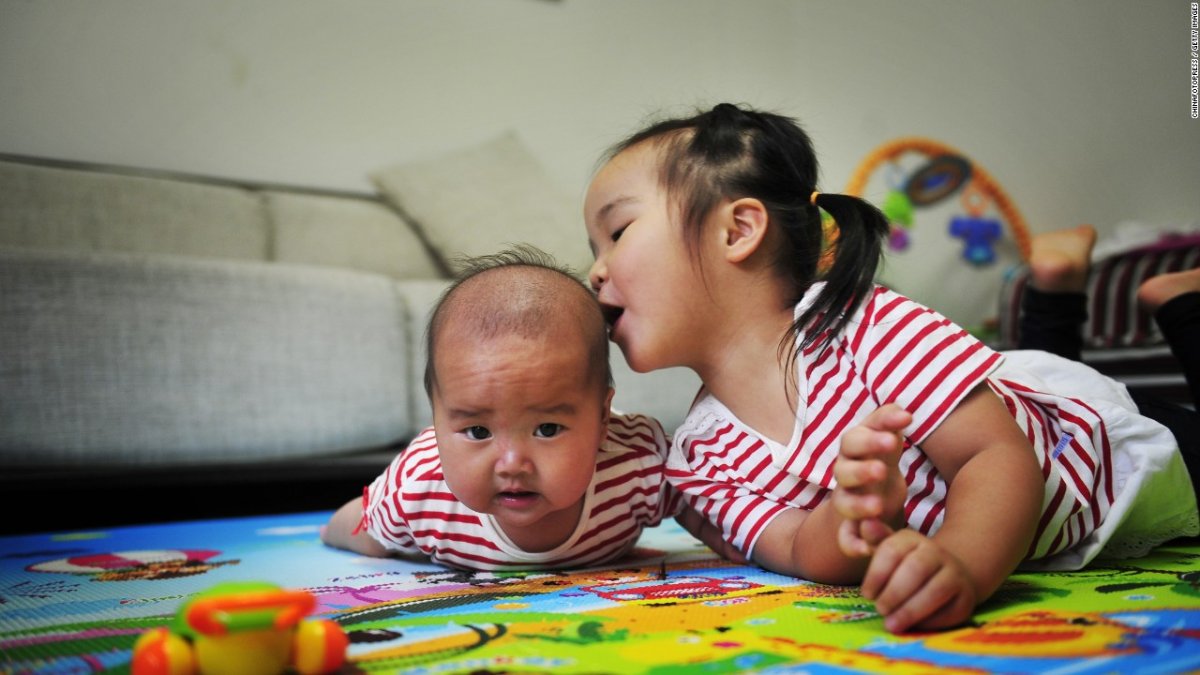Disproving Maternal Misconceptions: What You Need to Know About Having a Child After 35
Now that the one-child policy has been officially implemented, many Chinese parents find themselves asking about the implications of having a second child. The main issue is that the majority (an estimated 60 percent) of China’s female population are now over the age of 35, leading to the question: what are the risks of getting pregnant later in life?
Getting pregnant The chance of being infertile (having difficulties getting pregnant), rises from about one in six people under the age of 35 (for women) to one in three between the age of 40 and 44. This is because of the poorer quality eggs and the increase in one-offs, genetic abnormalities in the fertilized egg (called an embryo). Thankfully, there are treatment options available, such as intrauterine insemination or in vitro fertilization (IVF), which may be helpful, depending on personal circumstances.

Miscarriage
Studies show the risk of having a miscarriage increase from 12 percent for 30- to 34-year-olds, to 18 percent for ages 35 to 39 and 34 percent for 40- to 44-year-olds. Over the age of 45, the risk of having a miscarriage is over 50 percent. This is not because the woman is unable to carry through the pregnancy (as evidenced by the many 60 plus year old women who have successfully delivered through egg donation), but rather due to the poor quality of eggs.
Risk of having a genetically abnormal baby
At the age of 35, the risk of having a baby with Down’s syndrome is one in 378, and the risk of any chromosome abnormality is one in 192. These risks rise respectively at the age of 40 to one in 106 and one in 66; and further to one in 30 and one in 21 at the age of 45.
Other health conditions
As women age, they are more likely to have other gynecologic conditions, such as fibroids (usually benign lumps of uterine muscle) or endometriosis (cells from the lining of the womb which implant outside the womb), sometimes causing painful periods.
As they get older, women may also develop other medical conditions, such as high blood pressure or diabetes, all of which can affect pregnancy.
What about the aging man?
As men age, the shape of sperm change (morphology) and how many of them move (motility) decline. There is also a slight increase in genetic abnormality in the sperm. Men may also have decreased libido, usually as a result of lifestyle, but occasionally, there may be a medical condition that can be tested for and treated.
Risks of pregnancy and delivery
There are increased risks in pregnancy – such as developing high blood pressure, diabetes, increased risk of bleeding after delivery (called Postpartum Hemorrhage or “PPH”), or needing to induce the birth or having a Caesarean section. Overall, the risks, though increased, are not big and are manageable. Considering serious complications only, the risk of significant bleeding following delivery (defined as losing over 1 liter of blood) increases from one in 100 to two in 100. The risk of developing blood clots in the lungs rises from five in 10,000 under age 35, to 15 in 10,000 over the age of 40. The risk of a stillbirth increases from five in 1000 under 35 years, to eight in 1000 over the age of 40. On the plus side, more women, aged over 35, are likely to breast feed which presents advantages to both the baby and mother’s health.

What should I do if I want a second child and am over 35?
The first message is one of reassurance: Don’t let talk of the risks of pregnancy deter you. The absolute risks are small and manageable. Most doctors recommend having your antenatal care in a place where you can be given personalized care that meets your specific requirements, and you are given the time to have your specific risks discussed with you.
Second, and most important – start trying for your second child as young as possible. It will significantly increase your chances of conceiving naturally or with treatment.
You should consider your lifestyle choices – if you smoke, stop, or at least cut down The same goes for drinking. If you are over or underweight, you should try to normalize your weight.
Make sure that your health screening is up to date – such as your “Pap” smear (testing for pre-cancer cells on the neck of the womb), and that you are immune to German measles (rubella).
You should also take folic acid in 0.4mg capsules daily, unless you are in a high risk demographic, such as those on specific types of medicines, or those who have diabetes, in which case you should consult your doctor, as you will need a higher dose.
If you cannot conceive naturally, say within six months, between the age of 35 and 40, or earlier if older, go to see a fertility specialist.
If you have irregular periods, or if you have a history of pelvic surgery or infection, it is advisable to see your fertility specialist as soon as possible.
Finally, there are tests of “ovarian reserve” or egg quality. These are used to predict the response of the ovaries during fertility treatment and to give a guide to under or over-responding to the drugs given to stimulate eggs. Studies have been done to see if they can predict how difficult it is to get pregnant (using a measure called “time to pregnancy”), or to see if it is possible to predict when a woman will become less fertile or even enters menopause. It should be noted that although the logic is appealing, so far the studies have not conclusively found these tests to be beneficial. It would be worth having a discussion with your fertility specialist about these tests, and how they can be interpreted in your specific circumstance.

Take-home messages
• Try for a baby sooner than later.
• See a fertility specialist early. Get specific advice on your personal situation and know what treatment options are available to you.
• The obstetric risks, whilst increased, are small and manageable.

This article was written by Tianjin United Family Hospital, General Manager Dr. Masoud Afnan MBBS. He is a FRCOG Fertility Specialist, Obstetrician & Gynecologist, Obstetrics & Gynecology Dept., United Family Healthcare Reproductive Medicine Center.
Biography
Dr. Afnan, a United Kingdom native, graduated from the University of London Charing Cross Hospital Medical School. Throughout the course of his studies and his professional experience, Dr. Afnan has established a strong background in general Obstetrics and Gynecology, as well as specialized in infertility and assisted conception.
Dr. Afnan has 30 years of experience as an obstetrician and gynecologist, serving in various roles including clinical, academic, and administrative positions. He has made numerous contributions to the British Royal College of Obstetricians and Gynecologists (RCOG), the Human Fertilization and Embryology Authority (HFEA), and the British Fertility Society.
Dr. Afnan developed the Assisted Conception Unit (ACU) at the Birmingham Women’s Hospital (UK), which has consistently produced above-average pregnancy rates. He also led the development of selective salpingography, a simple outpatient technique for overcoming blocked tubes.
Dr. Afnan joined UFH in 2010. From 2010 to 2012, he was the chair of the Obstetrician and Gynecology Department at Beijing United Family Hospital. Following his success, he took over the Chief Medical Officer role for Beijing from 2013 to 2015. Before that, he worked as a consultant for Gynecology, specializing in infertility, at the Birmingham Women’s Hospital. He has been the chair of many committees and programs and was the supervisor for an RCOG-accredited sub-specialist training program in reproductive medicine.
Dr. Afnan has written over 60 publications and 10 book chapters, and is actively involved in research and development programs in the field of infertility.








